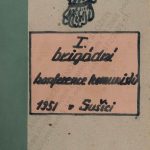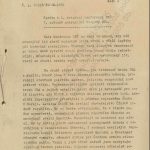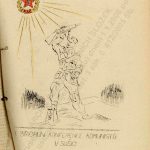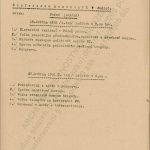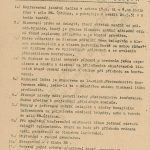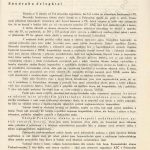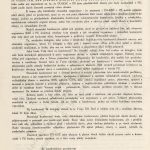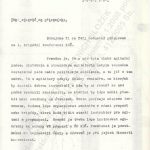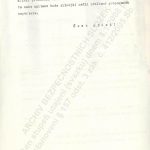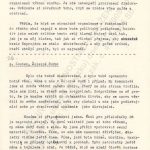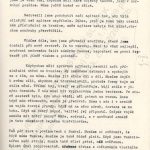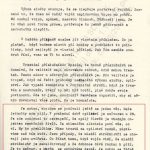Units have been Drinking …
As evidence of the time served with the Border Patrol units, we can use not only resources of an operative nature but also resources pertaining to the everyday activities of the political apparatus of the border patrol brigades. The “party discussions” reveal everyday matters more clearly than commands and activity reports.
“We need to look into one more issue. Our units have been drinking. Alcohol abuse has recently been a problem in the Border Patrol. Here, comrades, there really is the danger that a drunken man is a likely target for reactionary elements. In exchange for a little glass of alcohol he may tell whatever he knows. We are negligent to this. We have a lot of penalties for drinking, we are surprised by this. There are cases when our younger constables act like wild animals. What should we say when a soldier sees a younger constable high on booze and even commanding others to drink. This is a predicament we face every day. This must be done away with completely. We don’t want our troops to be teetotallers, but they have to know how much they can drink”. [punctuation added]
The above quote was taken from an address by one of the speakers at the first conference of the communist party organisation of the 7th Border Patrol Regiment in Susice in May 1951 (ABS Brno-Kanice, coll. code 2343 – 7th Border Patrol Regiment in Susice, inv. no. 1247).
The speaker is identified as “comrade Zoubek from Zelezna Ruda”. Everything indicates that this was Josef Zoubek (*1922), who was the commander of the Zelezna Ruda battalion of the 7th Border Patrol Regiment until 1 November 1951. After that he was sent on a commander course at the Higher Infantry Officers School in Bruntal and from November 1952 to 1957 he was the commander of the 4th Border Patrol Regiment in Znojmo.
The written documents from the conference provide, in the party speak, an insight into the situation of the 7th Brigade after the so-called new lineup (i.e. military patrolling) was introduced at the beginning of 1951. The accompanying images display, for instance, the conference programme, the introductory paper of the conference report, a flyer and the agenda. What is interesting is the “instruction” for the delegates, apparently in a prefabricated text. The records also contain responses to the comments that arose during the discussion. As an example, a response to the address given by Josef Zoubek is also displayed. However, it does not mention alcohol at all but responds to another part of his address – there was perhaps nothing more to be said about drinking. There is a certain anomaly of time, as the responses to the comments are put before the addresses and contributions, including the address by Josef Zoubek, and so the quoted passages being placed at the end of this material.


